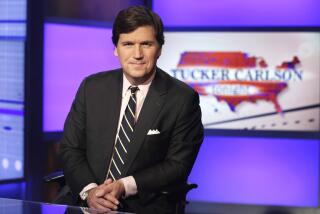Gromyko Assailed in Pravda Interview
- Share via
MOSCOW — Andrei A. Gromyko, the longtime Soviet foreign minister who retired as president over the weekend, was attacked Monday in the Communist Party newspaper Pravda for his “confrontational” approach to international affairs.
In an interview with Pravda, Alexander M. Belonogov, the Soviet ambassador to the United Nations, sharply criticized the style and substance of Soviet foreign policy during the three decades Gromyko was foreign minister.
From almost the beginning of the United Nations, which Gromyko, 79, helped to found, Soviet envoys followed a combative pattern that was set when Gromyko was ambassador, Belonogov said. Over the years, he said, Moscow’s policy was permeated with “a spirit of intolerance and confrontation.”
Excessive dedication to ideology blinded the country to its true interests, Belonogov said, citing Soviet refusal to help form international financial and economic organizations in the late 1940s.
“The consequences of our country’s non-participation are still felt to this day,” he said.
Belonogov recalled that as a young diplomat at U.N. headquarters in the 1950s, he and others were judged by “our ability to use strong language in addressing political opponents, on our readiness and ability to discredit whenever possible not only the ideas they promoted but also the bearers of the ideas as people.”
Although Gromyko has been criticized in recent months for his conduct of foreign policy, largely to justify the new course pursued under Mikhail S. Gorbachev, the Belonogov interview was notable because Gorbachev had praised Gromyko on his retirement and thanked him for half a century of service.
The interview, coming after considerable sparring within the Soviet leadership over the basis of foreign policy, appeared to be intended to reaffirm the direction taken since Gorbachev came to power in March, 1985, and to make clear that Moscow was not returning to the old “class” basis that promoted worldwide revolution as its first goal.
Gorbachev, who assumed the presidency after Gromyko’s retirement, told the Supreme Soviet, or Parliament, after his election Saturday that foreign policy is “aimed at eliminating the danger of nuclear catastrophe, at normalizing international relations, at broad cooperation in greatly varied areas.”
“Our course in foreign affairs is clear,” Gorbachev declared, moving to end the debate over it. “We will continue to follow this course without wavering.”
‘New Political Thinking’
Belonogov, 57, an advocate of the “new political thinking” that now characterizes Moscow’s foreign policy, said the main task of Soviet diplomacy is to seek points of contact among differing positions “in order to move these as close as possible to each other, raising the general level of trust.”
“We say there can be no military-political security without economic and ecological security, without the resolution of humanitarian problems,” Belonogov said, emphasizing the Soviet commitment to the broadened definition of mutual security that underlies many of its recent initiatives.
In other political developments, the man who has been minister of the interior for the past 2 1/2 years was appointed premier of the Russian Federation, the largest of the 15 Soviet republics.
Alexander V. Vlasov, 56, had been promoted to the Politburo as a non-voting member last week as part of Gorbachev’s realignment of the Kremlin leadership. The Russian Federation reaches from Leningrad on the Gulf of Finland to Vladivostok on the Sea of Japan and accounts for three-quarters of the country’s territory and more than half of its population.
He replaced Vitaly I. Vorotnikov, 62, who took over the post of chairman of the Presidium of the Russian Federation Parliament.
More to Read
Sign up for Essential California
The most important California stories and recommendations in your inbox every morning.
You may occasionally receive promotional content from the Los Angeles Times.













